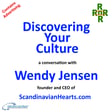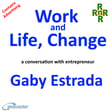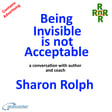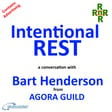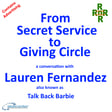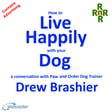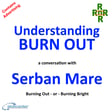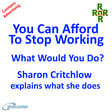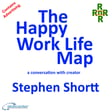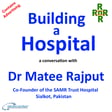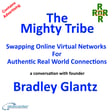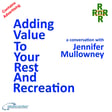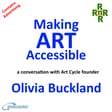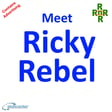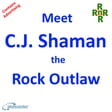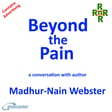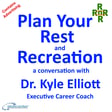
Living a Life in Balance – a conversation with author Abdullah Boulad
Michael Millward meets Abdullah Boulad.
Abdullah tells Michael about how a combination of personal and professional stressful in his early thirties prompted a career 180 shift from corporate to mental healthcare.
He spent seven years working to gain a wide range of health and well-being qualifications. He then established The Balance a group of rehabilitation clinics.
Abdullah explains the six stages of The Balance approach. It involves a wide range of health and well-being professionals who create individual programmes that help clients to achieve long-term and meaningful lifestyle changes.
Buy Living a Life in Balance: A Holistic Guide for Physical, Mental, Social, Spiritual Health & Performance at these bookshops
Rest and Recreation is Made on Zencastr, the all-in-one podcasting platform, on which you can create your podcast in one place and then distribute it to every platform. Zencastr really does make making content so easy.
If you would like to try podcasting using Zencastr visit zencastr.com/pricing and use our offer code ABECEDER.
Travel to Mallorca
Members of The Ultimate Travel Club can book travel to Mallorca or anywhere else in the world at trade prices. Use our offer code ABEC79 to receive a discount on club membership fees.
Visit Abeceder for more information about both Michael Millward, and Abdullah Boulad.
Tech Problems?
If you are using your smartphone to listen to The Independent Minds and experienced connection problems, you would probably like to know that Three has the UK’s fastest 5G network with unlimited data, so listening on Three means that you can wave goodbye to buffering.
Visit Three for information about business and personal telecom solutions from Three, and the special offers available when you quote our referral code WPFNUQHU.
Being a Guest
If you would like to be a guest on The Independent Minds, please contact Abeceder.
We recommend that potential guests take one of the podcasting guest training programmes available from Work Place Learning Centre.
If you have liked this episode of The Independent Minds, please give it a like and download it so that you can listen any time anywhere.
To make sure you do not miss future editions please subscribe.
Remember, the aim of all the podcasts produced by Abeceder is not to tell you what to think, but we do hope to make you think!
I appreciate every like, subsccription, and download.
Until the next time, thank you for listening.
